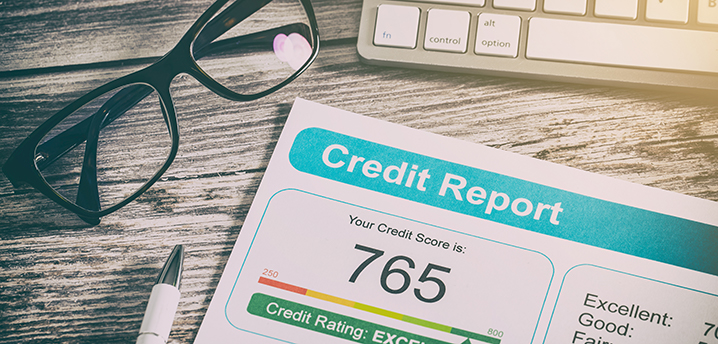If you’re applying for a loan or credit card, it’s important to familiarize yourself with hard credit inquiries.
The next time you’re shopping around for a new loan or credit card, pay close attention to the application. You’ll find that most applications require a hard inquiry. So what exactly is a hard inquiry and what will it mean for your credit score? Let’s take a closer look at hard credit inquiries and how they work.
What Is a Hard Credit Inquiry?
Also known as a hard credit pull or hard credit check, a hard credit inquiry arises when you apply for a loan or credit card. It requires your consent and becomes a part of your credit report. This means that anyone who pulls your report will see your hard credit inquiry.
The purpose of a hard credit inquiry is to help a lender or creditor figure out whether or not to approve your application. If it indicates you have a poor credit, you may not be eligible for the product you’re applying for. On the contrary, if a hard inquiry shows you have good or excellent credit, you’re likely to get approved. The lender might also offer you a low interest rate and favorable terms.
Since a hard inquiry should only come from a credit or loan application you apply for, the only way it can happen without your knowledge is if you’re a victim of identity theft. Someone may steal your identity and attempt to open an account in your name. For this reason, it’s important to keep tabs on your credit report and look for any errors or inaccurate remarks on a regular basis.
Hard Credit Inquiry vs. Soft Credit Inquiry
A hard inquiry is when a lender pulls your credit to determine whether or not to extend you an offer. This type of inquiry will appear on your credit report and impact your credit scores. Hard credit inquiries are widely seen with personal loans, auto loans, student loans, mortgages, and credit cards.
A soft credit inquiry or soft credit pull, on the other hand, occurs when you check your own credit or a lender checks it on your behalf in order to preapprove you for an offer. Pre-qualified credit card offers, insurance quotes, background checks, and employment verifications often involve soft inquiries. Unlike a hard inquiry, a soft inquiry will only be visible to you and have no affect on your credit scores.
How to Tell What Type of Inquiry is Being Made
Sometimes, it’s very obvious whether a lender or creditor is performing a hard credit inquiry or a soft credit inquiry. They will clearly convey this information on their website, loan application, or terms. Other times, however, this detail will be buried deep into the terms or a website’s fine print.
While the lender or creditor must reveal what type of inquiry they plan to make, it’s your responsibility to find and understand this information. If you’re unsure of whether they’ll pull a hard credit inquiry or soft credit inquiry, don’t hesitate to reach out to them.
A customer service representative will likely provide you with the clarity you need. Do not apply for an offer unless you are aware of the type of inquiry that it involves.
How Long Do Hard Credit Inquiries Stay on a Credit Report?
You can expect a hard inquiry to stay on your credit report for about two years. Fortunately, its effect on your credit will lessen as time goes on. Even if your credit report shows multiple hard inquiries within a short time frame, you may still get approved for a loan or a credit card.
This is because most credit scoring models place greater weight on factors like timely payments and low credit utilization ratios than multiple hard inquiries. Credit inquiries usually account for no more than 10% of your credit score. Therefore, don’t let them stop you from applying for and securing the financing you need to meet your financial goals.
Why Does a Hard Credit Inquiry Hurt Credit?
A hard inquiry may lower your credit score by a few points. On average, each hard credit pull has the potential to decrease your credit score by 5 to 10 points. If you have too many of them on your report in a short time period, lenders may believe you’re a risky borrower. Fortunately, there are several ways you can reduce the number of hard inquiries you have. Here are some tips.
- Only apply when necessary: It may be tempting to apply for a new loan or credit card whenever you feel like it. Since doing so can ding your credit, fill out applications when you absolutely need the funds.
- Get to know approval requirements: Before you apply for credit, make sure you know what the lender or creditor requires for approval. This way you won’t rack up hard inquiries for credit which you’ll probably get denied for.
- Use prequalification tools: Take advantage of online prequalification tools if they’re available. They can give you an idea of how likely you are to get approved for an offer without damaging your credit.
- Watch out for promotional deals: You may see ads online or in the mail with loan and credit offers that sound appealing. Maybe they have incredibly low interest rates. Or perhaps they come with freebies. Regardless, don’t apply for an offer unless you need it or plan to use it. The hard inquiry on your credit score probably won’t be worth it.
- Check your credit: It’s not a wise move to apply for loans or credit cards until you know where you stand credit-wise. Visit AnnualCreditReport.com to get free copies of your credit reports from the three major bureaus: Equifax, Experian, and TransUnion.
Can Creditors Perform a Hard Credit Check Without a Social Security Number?
Contrary to popular belief, a creditor may perform a hard credit check without a Social Security number. Experian, for example, uses the identification details provided by the creditor or lender to add remarks to credit reports. Therefore, the hard credit pull might show up on your report, even if you didn’t provide a Social Security number.
What Happens If I Have Multiple Hard Credit Inquiries on My Report?
When your credit report features multiple hard credit inquiries, lenders may believe you’re financially unstable. This is because they assume that you resort to financing often because you don’t have the funds on hand to take care of your expenses.
If you’re on top of your finances but simply want to shop around for the best rate without hurting your credit too much, you’re in luck. You can participate in rate shopping and give credit bureaus the chance to consolidate your hard inquiries into one to reduce the impact on your credit score. Here’s a brief overview of how rate shopping works and how you can use it to your advantage.
- You have a set amount of time to rate shop: Don’t start shopping around rates until you’re confident you are in a position to open an account. This is because hard inquiries won’t affect your credit if you apply within 14 to 45 days, depending on the credit scoring model.
- You can only apply shop around for one type of product: Rate shopping applies to the same type of products. So you can only compare auto loan offers, for example, not auto loan offers and student loans at once.
- You can only rate shops for certain credit products: Unfortunately, rate shopping doesn’t apply to every type of product. While you can use it to find the best rate on auto loans, mortgages, and student loans, it doesn’t apply to credit cards and retail accounts.
Is It Possible to Remove Inquiries From Your Credit Report?
As we stated earlier, hard credit inquiries can only be performed if you agree to them. If you happen to notice an error like a hard credit pull you never approved, you should dispute it with the credit bureaus. The Fair Credit Reporting Act states that these bureaus must investigate any information you dispute and prove that you gave consent to the inquiry. In the event they find that you did not initiate the hard pull, they’ll remove it. If you did pursue it, they won’t delete the hard inquiry from your credit report.
Don’t Be Intimidated by Hard Credit Inquiries
If you notice a hard credit inquiry or a few of them on your credit report, don’t worry. The mark is there because your creditor or lender checked your credit when you applied for a credit card or loan. While your credit score may have gone down a bit, rest assured it can bounce back. All you have to do is prove that you’re a responsible borrower by making timely, full payments and keeping your debt utilization ratio low.
;)












